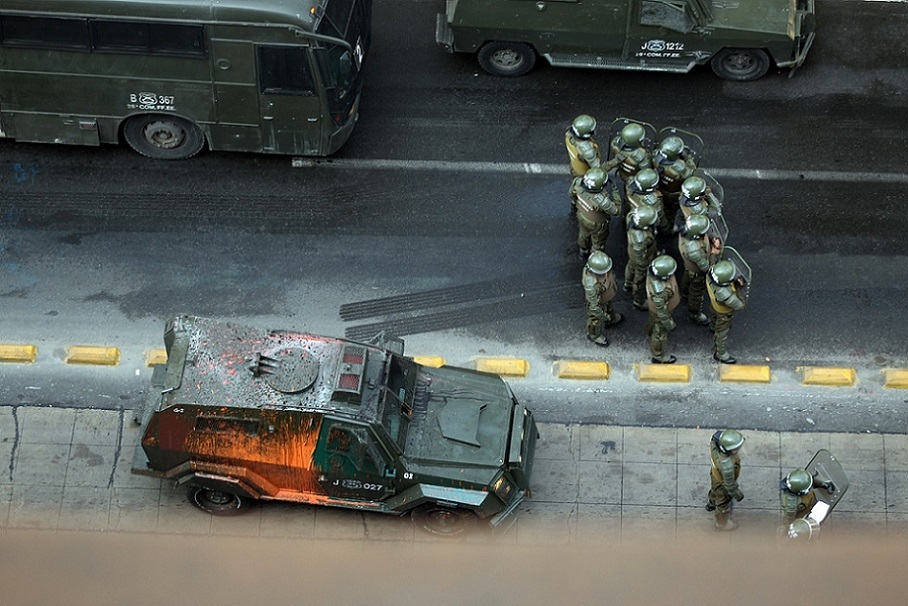The culture of hate and resentment, spread so successfully by the extreme right. The necropolitics bolstered by digital networks, which tend to isolate people and exacerbate violence. Only social policies that reduce social inequality can do away with such a bleak outlook.

Frei Betto
There is something that seems obvious to me: the greater the economic instability, social insecurity and feeling of fragility, the more likely the electorate to support Rambo-esque candidates.
Between order and freedom, they opt for the former. Between security and democracy, it’s the same story. Familiarity with 1920s and 1930s German history is enough to confirm that social insecurity – in a very educated nation – ensured that the winds blew in favour of the rise of Hitler. Watch the film Eldorado: Everything the Nazis Hate on Netflix. In Israel, Benjamin Netanyahu’s new right-wing politics, determined to reduce the Judiciary’s power, is based on the supposed Palestinian threat and constant attacks on camps in the West Bank. In France, the waves of protest against the new social security law, and now against the murder of 17-year-old Nael by a police officer, have politically benefitted far-right leader Marie Le Pen. In Brazil, the 2013 demonstrations and the economic crisis enabled Bolsonaro’s election in 2018. Authoritarian projects draw from the instructions for liquid medicines: “Shake before use.”
Clara Mattei, Economics professor and author of The Capital Order: How Economists Invented Austerity and Paved the Way to Fascism, argues that austerity opens the door for fascism.
 The author gives the examples of Mussolini, Trump and Italy’s current prime minister, Giorgia Meloni, as products of economic austerity. She says: “For capitalism to work, the majority of people must be disempowered and precarious, and dependent on the market. That is what austerity does. It takes resources away from the workers, who are the majority, and gives them to a minority, whose wealth comes from assets and rents.”
The author gives the examples of Mussolini, Trump and Italy’s current prime minister, Giorgia Meloni, as products of economic austerity. She says: “For capitalism to work, the majority of people must be disempowered and precarious, and dependent on the market. That is what austerity does. It takes resources away from the workers, who are the majority, and gives them to a minority, whose wealth comes from assets and rents.”
Adding: “We must stop idealising capitalism as a system that can be reformed and that has the flexibility to incorporate our needs, and realise that capitalism has rigid limits. It is a system that only grows and produces to generate profit, and this requires austerity. They were not just spending cuts; they were, first of all, social spending cuts, regressive taxation. Then came an increase in consumption taxes, as we still see today the world over: more taxes on individuals and less on the rich and corporate groups, or on wealth.”
The “pooretariat” – deprived of employment and victim of the utmost social insecurity due to lack of housing, health and education – is like a castaway, clinging to the first tree branch within reach: political leaders who adopt salvationist discourse, scorn democratic institutions, prefer the law of force to the force of law and invoke God as their ally.
 This necropolitics is bolstered by digital networks, which tend to isolate people, encourage them to consume, and exacerbate violence. The 16-year-old adolescent who carried out the massacre at a school in Aracruz (Espírito Santo, Brazil) in November 2022 told police that he had learned how to use weapons on the internet.
This necropolitics is bolstered by digital networks, which tend to isolate people, encourage them to consume, and exacerbate violence. The 16-year-old adolescent who carried out the massacre at a school in Aracruz (Espírito Santo, Brazil) in November 2022 told police that he had learned how to use weapons on the internet.
Seven months later, in Rio, maid Isabella da Silva Oliveira, 19, also admitted to using the internet to learn how to handle weapons to kill her employer, Lilson Braga, 66. This culture of hate and resentment, spread so successfully by the extreme right, can only be tackled by social policies that reduce social inequality, robustly condemn all forms of prejudice and promote political education for the popular classes, including decolonisation of the biblical message. PL
(Translated by Rebecca Ndhlovu) – Photos: Pixabay












.jpg)












